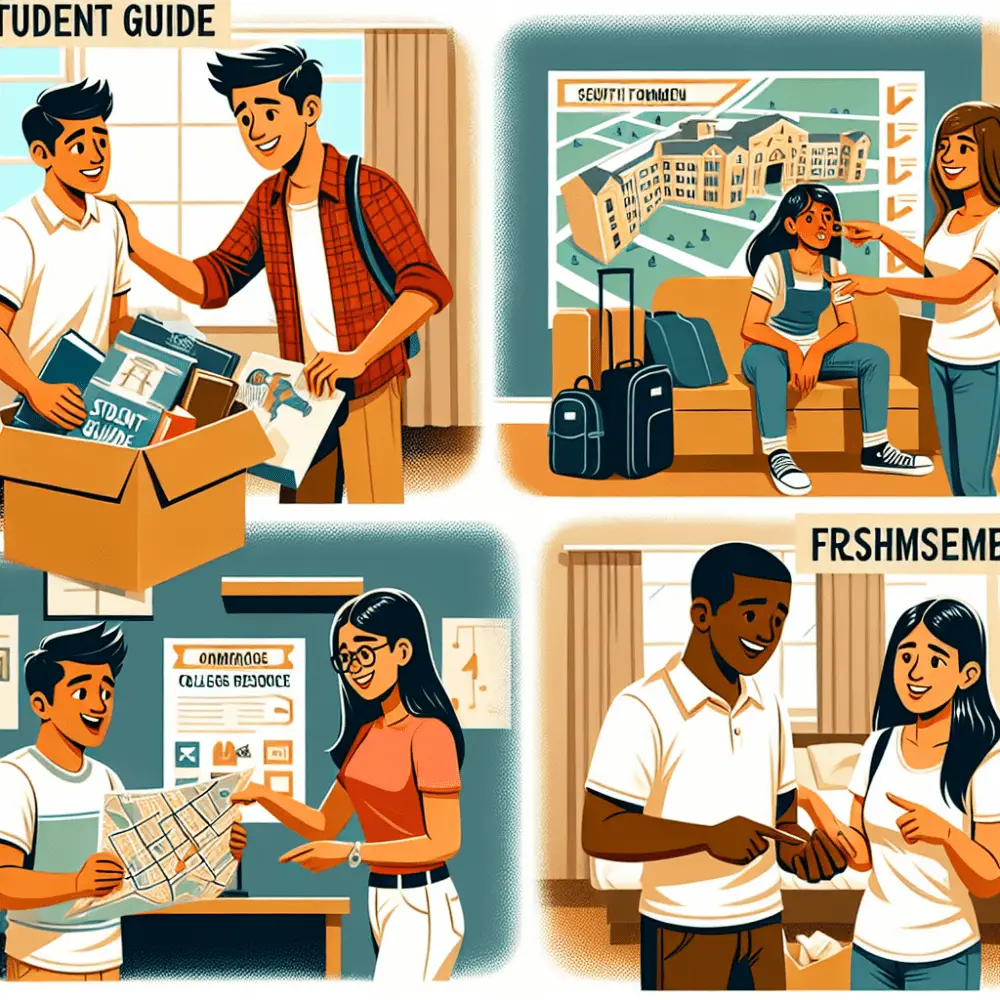
Welcome to the exciting world of college life! Transitioning from high school to college can be a challenging and overwhelming experience for many incoming freshmen. With so many new responsibilities, opportunities, and freedoms, it’s easy to feel lost or unsure of where to turn for help. That’s where student guides come in. These knowledgeable and experienced individuals play a crucial role in supporting incoming freshmen as they navigate the ins and outs of college life.
Whether it’s helping students find their way around campus, connecting them with resources, or providing guidance on academic and social matters, student guides are there every step of the way. In this article, we will explore how student guides can support incoming freshmen during this important transition period and help them make the most of their college experience.
The Role of Student Guides
Student guides play a vital role in supporting incoming freshmen as they transition to college life. These individuals are typically current students who have been specially trained to assist new students in navigating the various challenges and opportunities that come with starting college. They serve as mentors, advisors, and resources for incoming freshmen, helping them adjust to campus life and succeed academically.
Providing Guidance on Campus Resources
One of the key ways student guides support incoming freshmen is by helping them navigate the many resources available on campus. From academic support services like tutoring centers and writing labs to extracurricular activities and clubs, student guides can help new students find the resources they need to thrive academically and socially. By providing information on how to access these resources and offering guidance on which ones may be most beneficial, student guides can help incoming freshmen make the most of their college experience.
Assisting with Academic Advising
Another important role that student guides play is assisting incoming freshmen with academic advising. Navigating course requirements, selecting classes, and understanding academic policies can be confusing for new students. Student guides can help alleviate some of these uncertainties by providing guidance on course selection, helping students create class schedules that align with their academic goals, and connecting them with academic advisors who can provide further assistance.
Orienting New Students to Campus Life
Transitioning to college involves more than just academics – it also means adjusting to a new living environment, making new friends, and finding one’s place within the campus community. Student guides can play a critical role in orienting new students to campus life by showing them around campus, introducing them to key facilities like the library and dining halls, and helping them get involved in clubs or organizations that match their interests.
Providing Emotional Support
Starting college can be an emotionally challenging time for many students. The pressure to succeed academically, make new friends, and adjust to living away from home can all take a toll on a student’s mental well-being. Student guides are there to provide emotional support during this transitional period by offering a listening ear, sharing their own experiences as a source of comfort or encouragement,
Frequently Asked Questions (FAQ)
- What qualifications do student guides have?
Student guides are typically current college students who have undergone specialized training or orientation programs specifically designed for guiding incoming freshmen. - How can I become a student guide?
If you’re interested in becoming a student guide at your school,
you should reach out to your school’s orientation office or student affairs department
for more information on how you can apply - Can I request a specific student guide?
While some schools may allow you to request a specific
student guide if you have preferences,
please note that assignments are often made based on availability

















